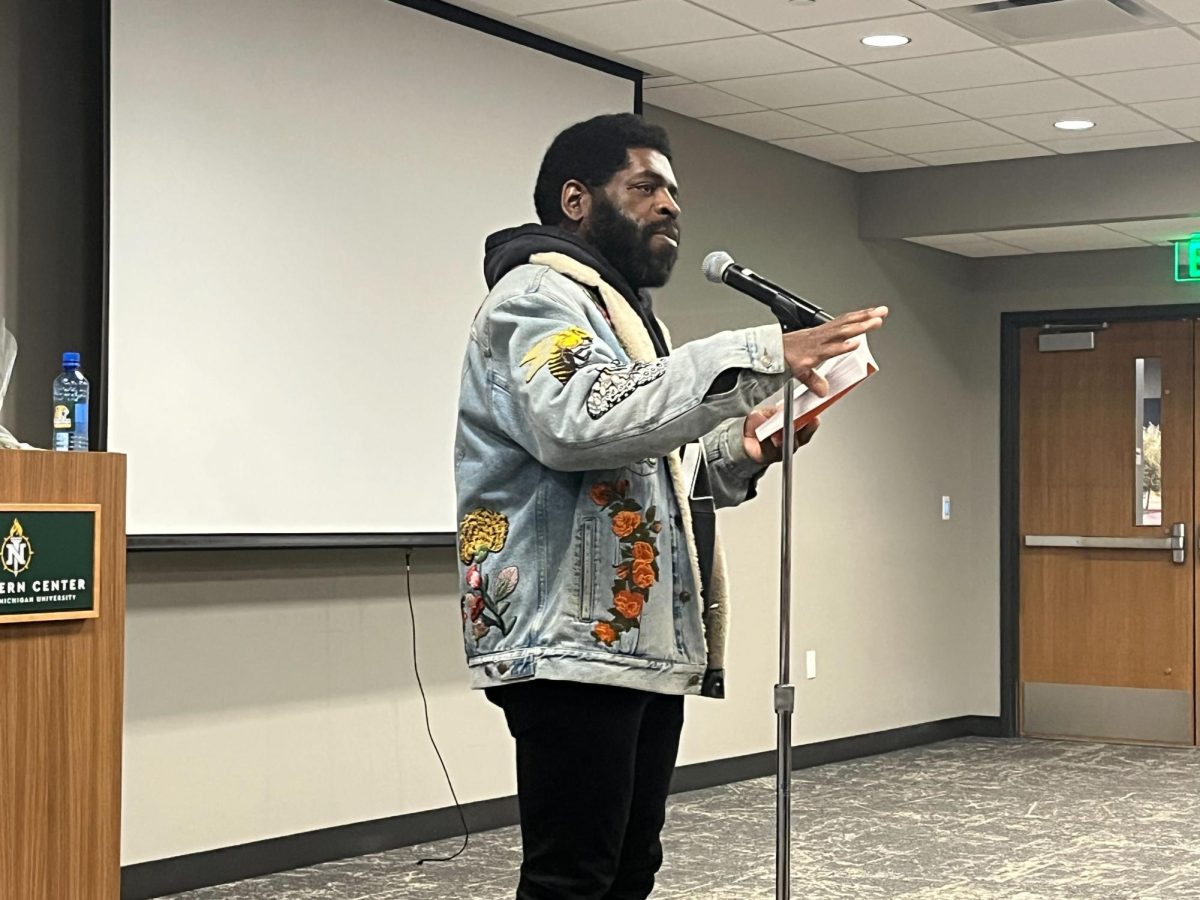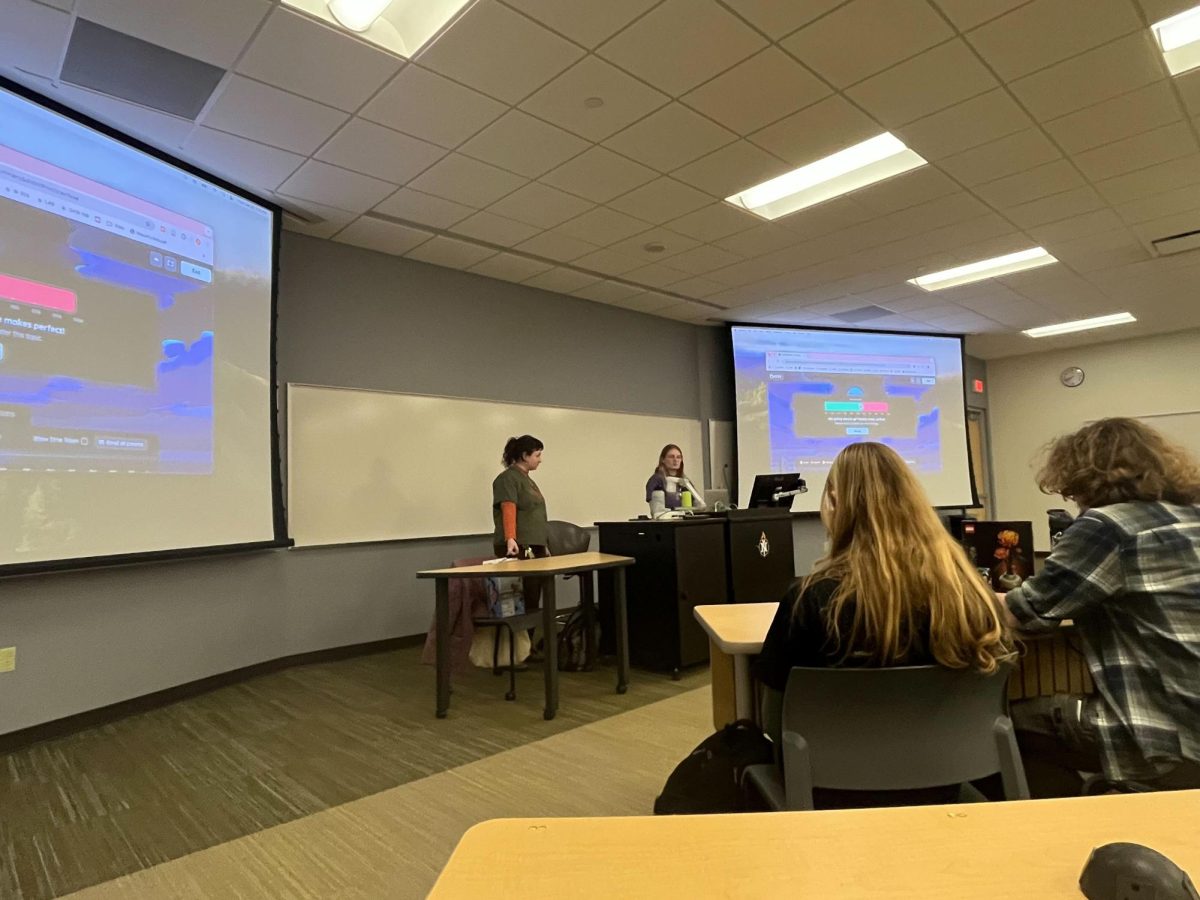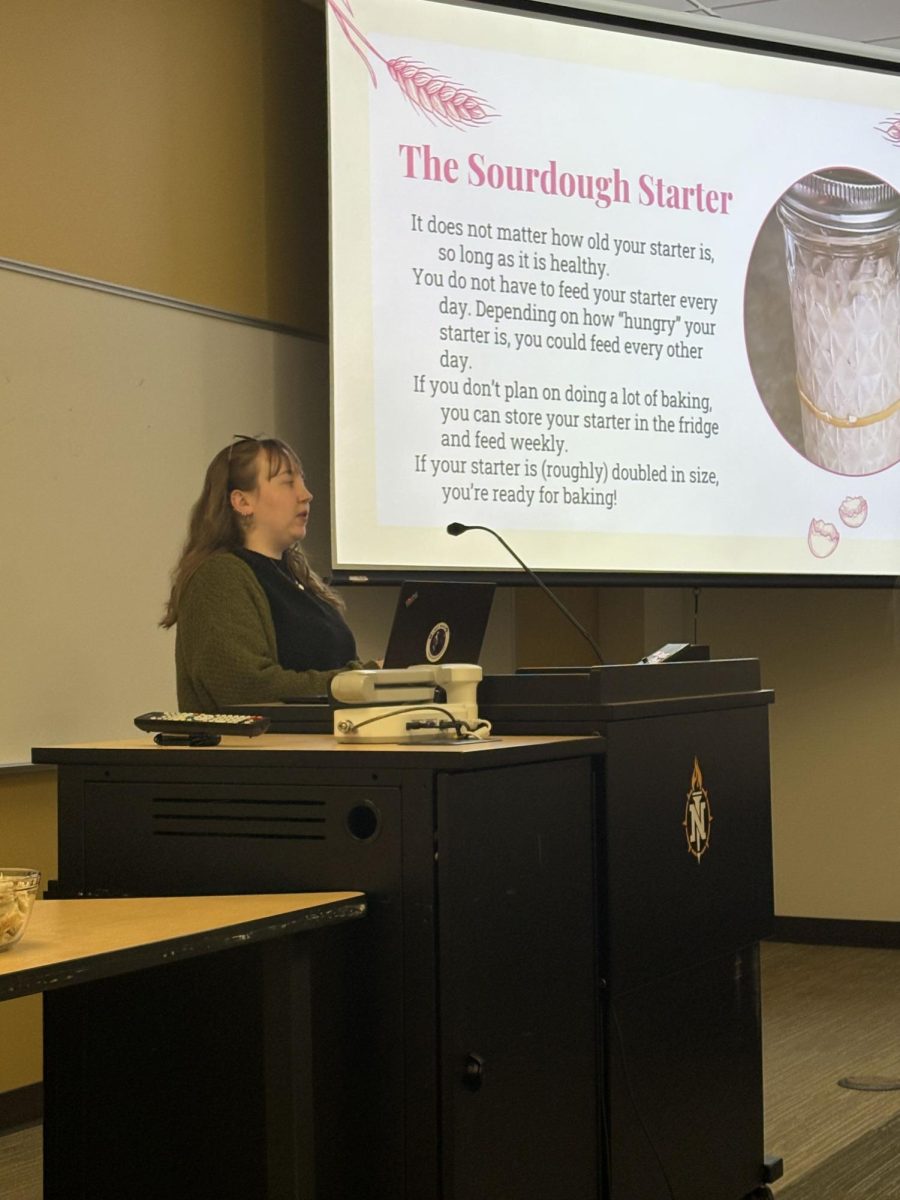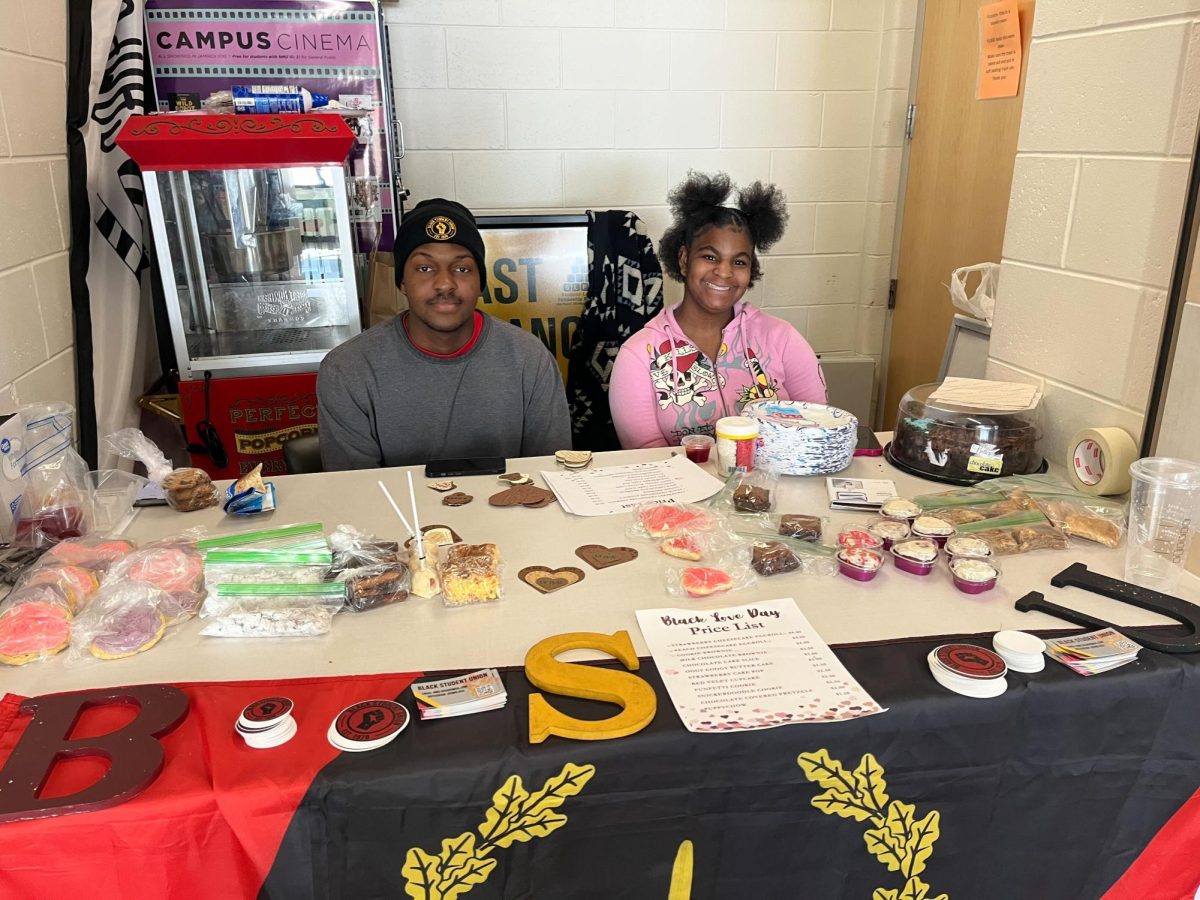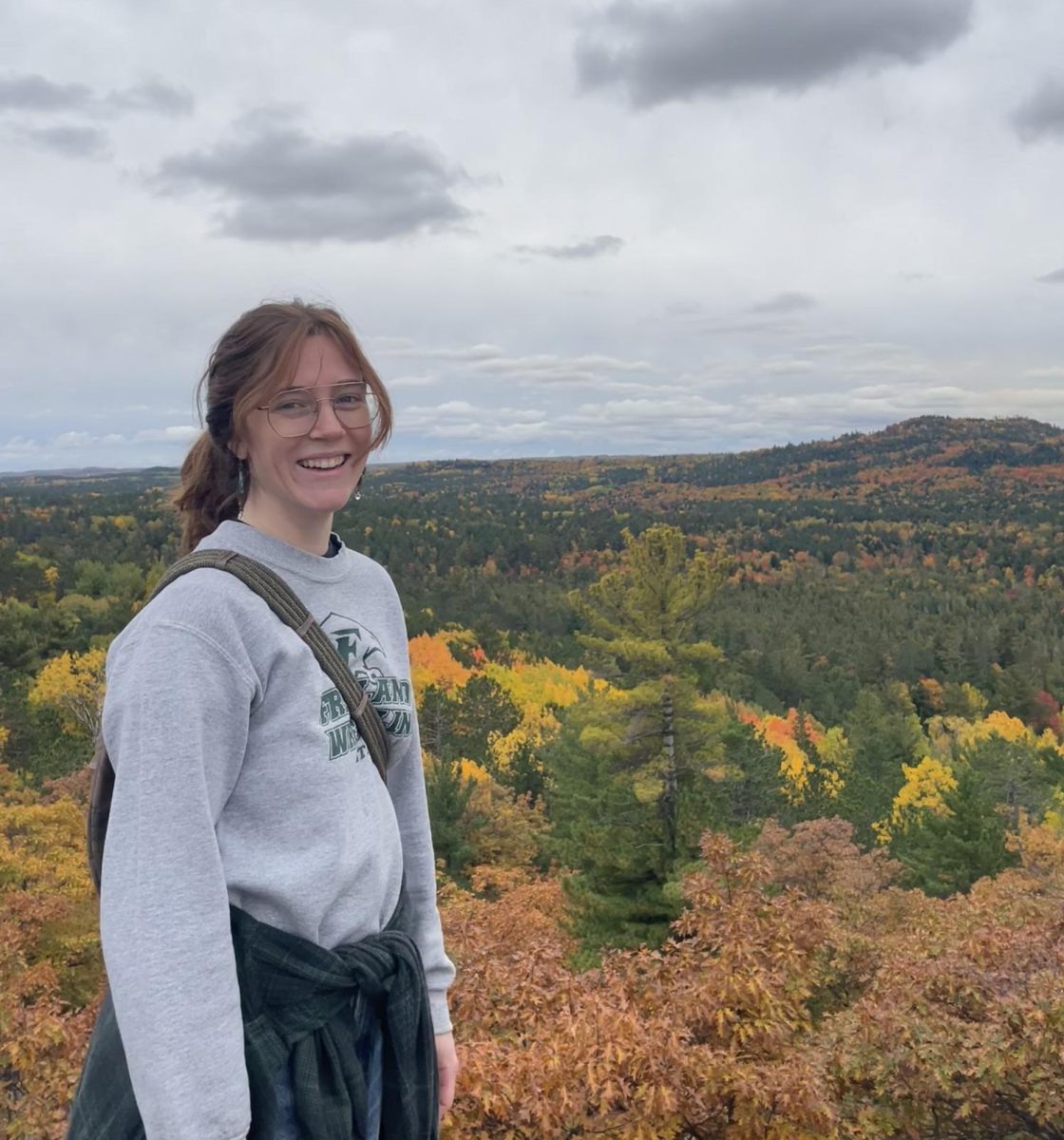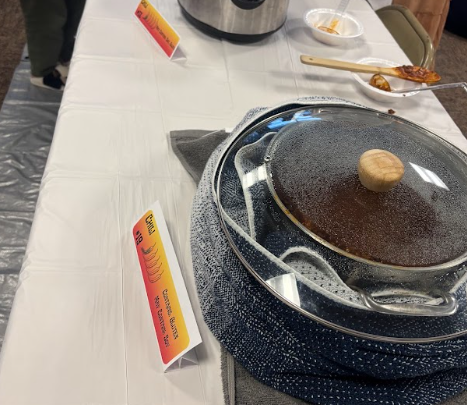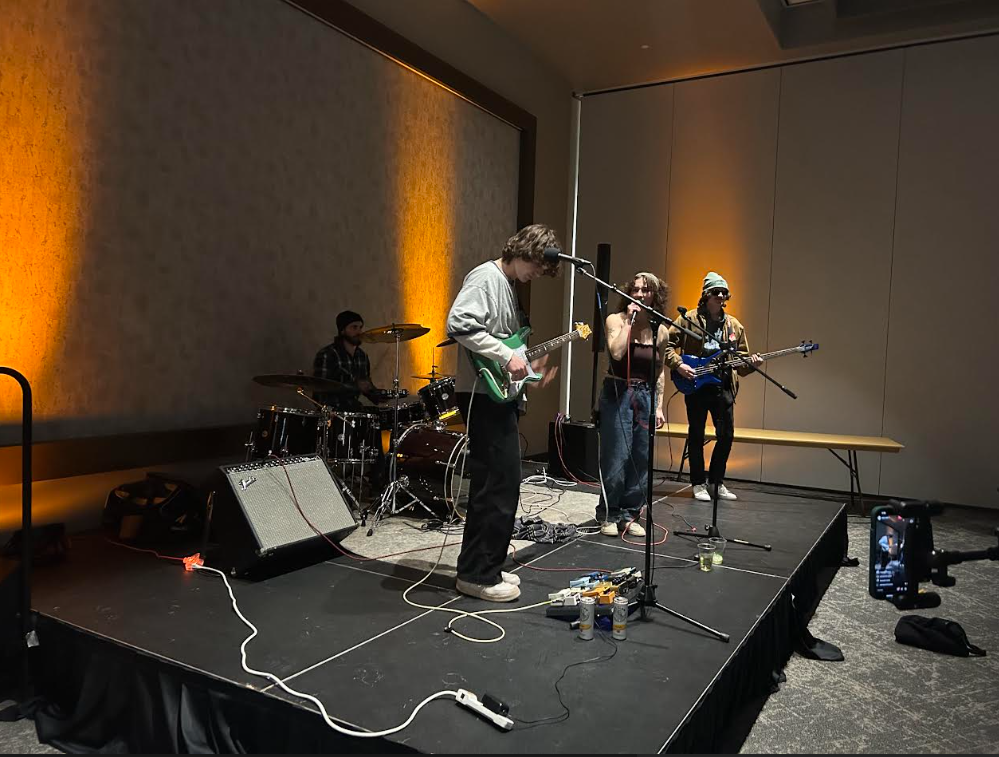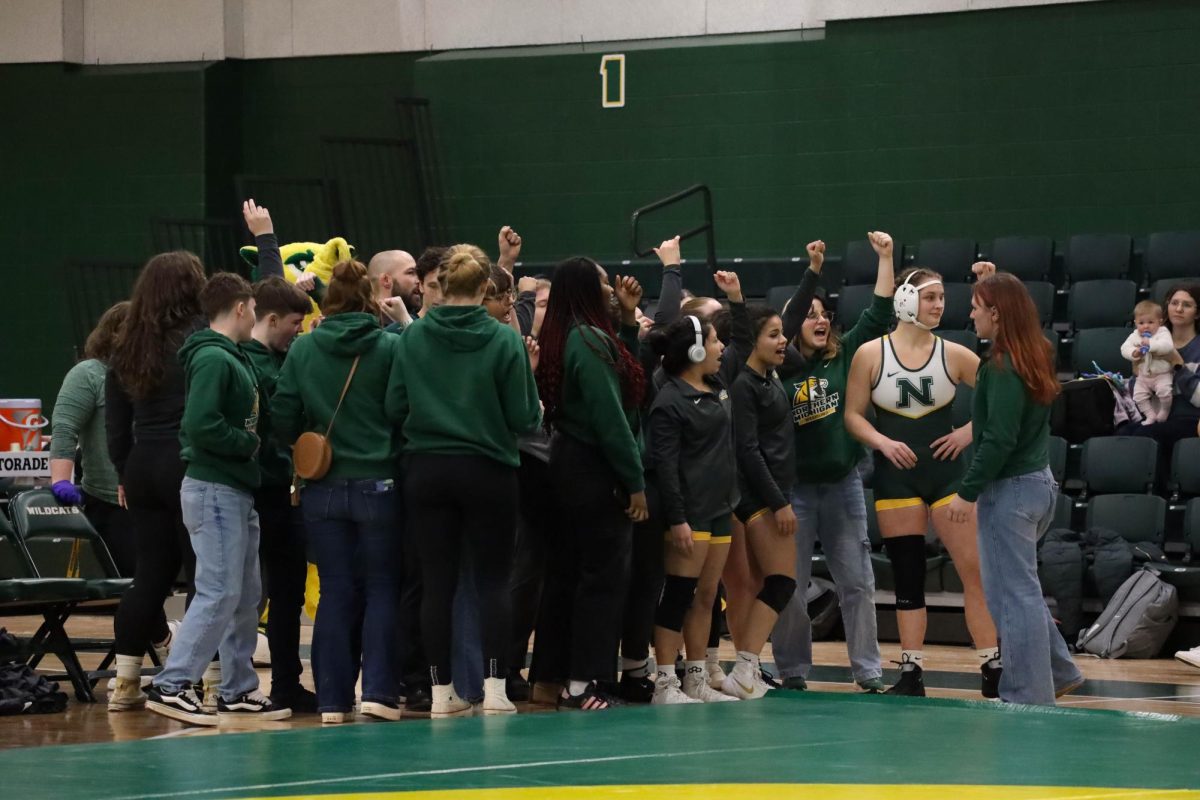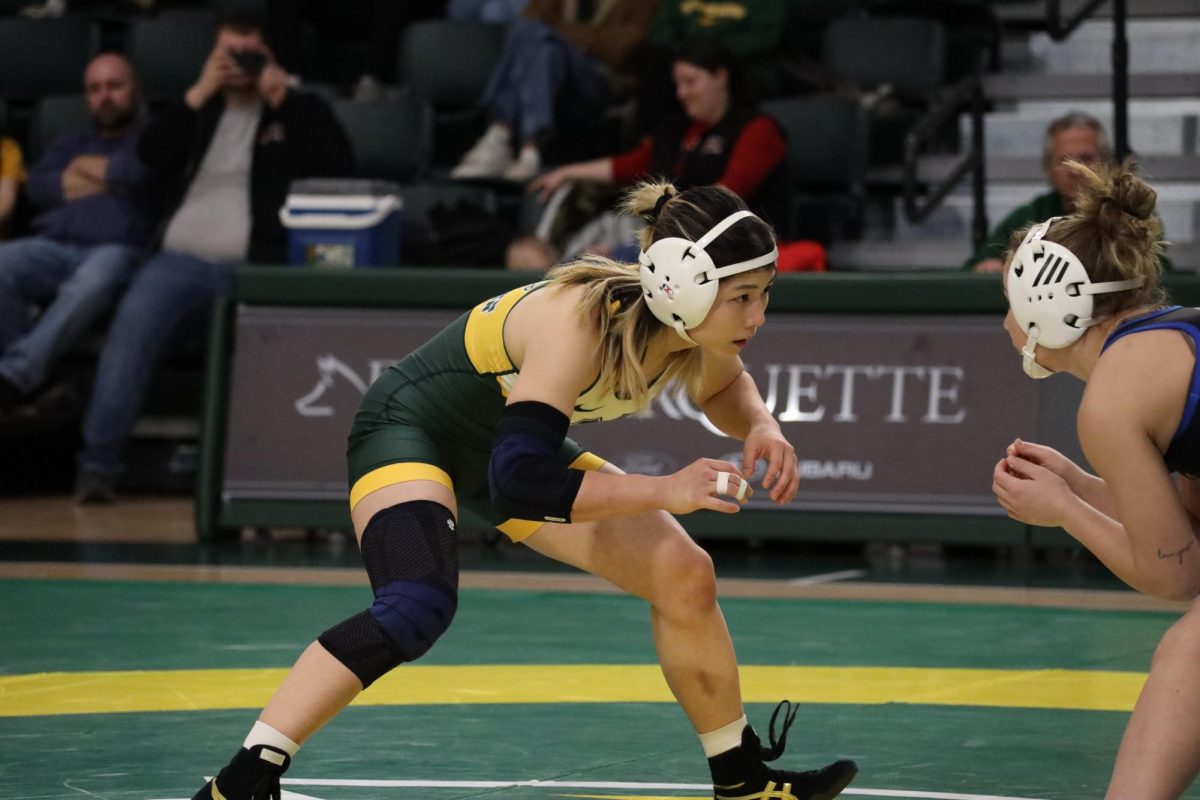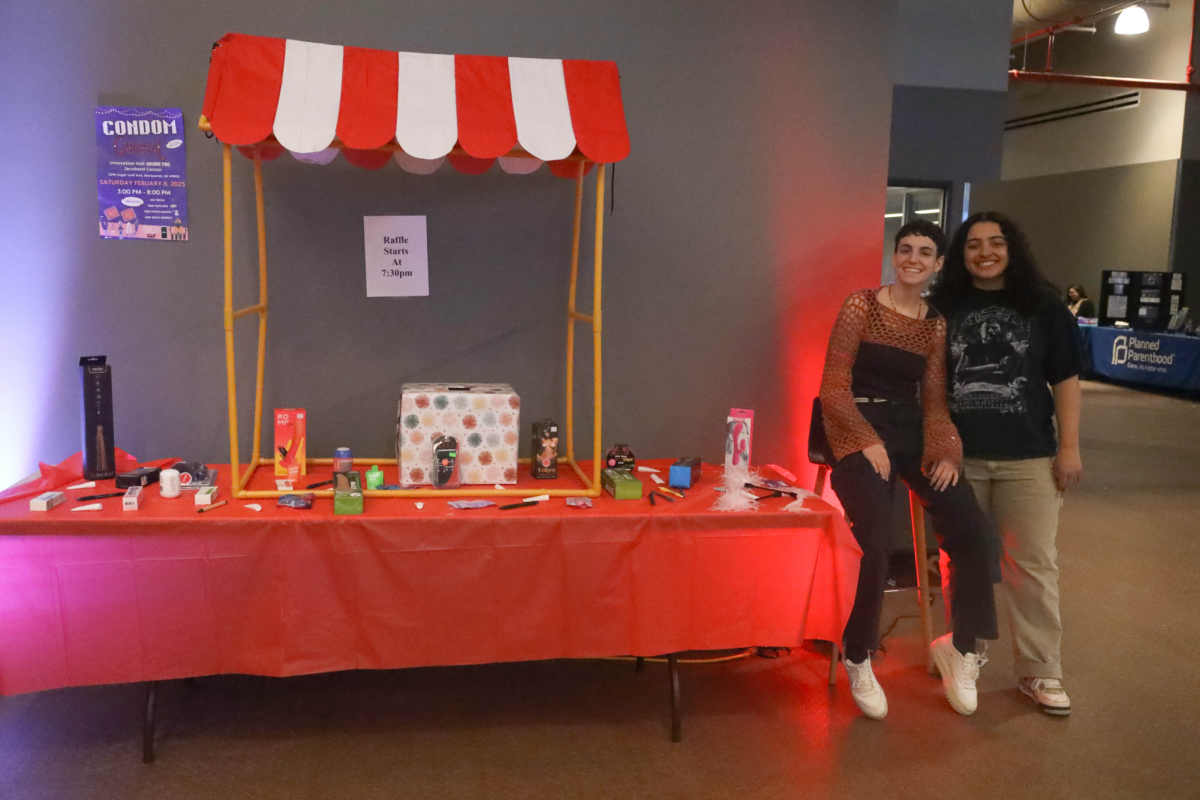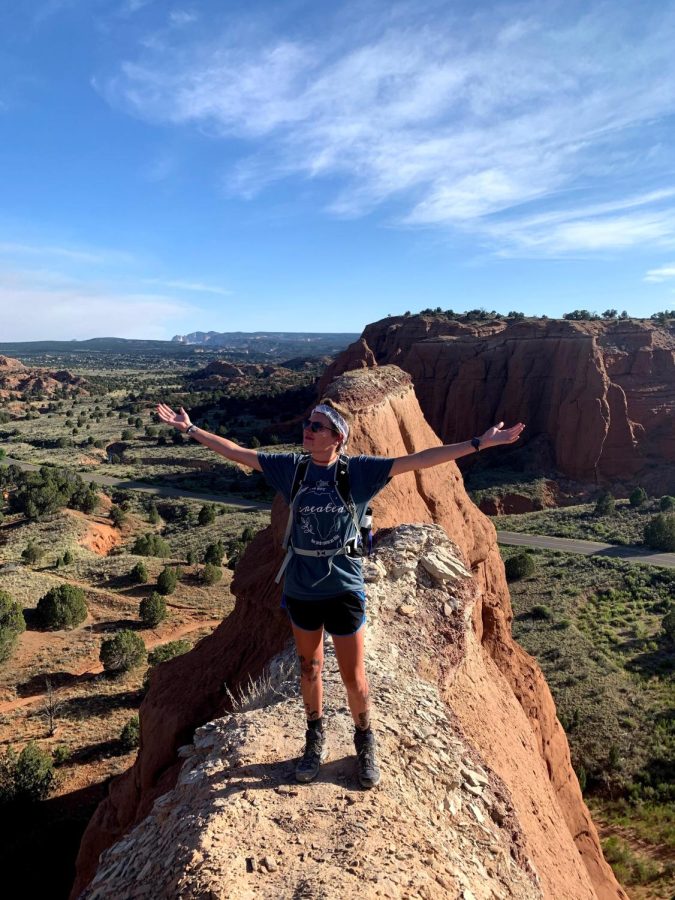The stigma surrounding non-traditional students
Photo courtesy of Sunshine Oxer
SEEING THE WORLD – Sunshine Oxer travels out west to explore National Parks and other wilderness areas before heading back to college. Their journey gave them many life experiences and helped them have a better understanding of why they want to get a college degree.
March 28, 2022
For Sunshine Oxer, a junior English major, the journey through higher academia was a non-traditional one but it was what worked best for them. They felt pressured to attend college directly after high school and decided to go to a community college in their hometown, but decided to wander out west before moving to NMU.
“I was really overwhelmed with the idea of being in debt because I was just like, ‘I don’t even want to know if I want to be here. So I’m going to go to community college to feel it out,’” Oxer said. “Then after a year, I still really didn’t know what I wanted and it really overwhelmed me. So I dropped out.”
To pay the bills, Oxer had to work many jobs, some of which were 60 to 70 hours per week. A few months after dropping out, they Googled jobs that provided housing outside of their hometown of Toledo and ultimately got hired at a food-service job in the Rocky Mountains.
“I was just not feeling happy with the traditional path. I just felt like it wasn’t for me. I was convinced I was never going to go back to school because it just felt wrong,” Oxer said.
But the work in the mountains was exhausting and unfulfilling as well. The best part of their jobs was being able to listen to audiobooks while performing mindless tasks. However, after COVID hit Oxer realized they missed learning and decided to apply to colleges again.
“I wanted to go to school. I just missed learning and I wanted to stop working for a while,” Oxer said. “I just wanted to stop doing all that heavy workload, because you can’t make enough money to live sometimes. And that was rough. So that’s really what pushed me to go back.”
And Oxer is not the only student choosing to pursue different experiences before attending college or staying longer than four years at an institution.
In 2021, only about half of all college students graduated in four years. In recent years, it is becoming more common that the non-traditional route is more ‘the norm’ than the exception, according to US Colleges Graduation Rate | UnivStats.
“[Graduating college is about] that internal drive. It’s finding that anchor point that they can go to of ‘why are you doing this?’” Neil Baumgartner, director of student success and wellness, said. “Your ‘why,’ is for you. It’s not for anybody else.”
A strong support system is critical for non-traditional students. According to Baumgartner, finding a caring community can not only help normalize the experience and eliminate the loneliness that tends to accompany it but also help eliminate any negative connotations or “otherness” that are often attributed to non-traditional students.
“There are a lot more students who are in those different life situations and who might be older, or who might be coming back out of a career, or might be coming from the military, or have families – and all these different things that when you find those connection points and those people who are like you, it helps build community,” Baumgartner said. “I think that helps to remove some of the stigmas.”
Ansje De Jonge, senior environmental studies and sustainability major, is another student who found a similar admiration for traveling, living and working in new places.
After getting life advice from a supportive figure while on track to go to law school at Michigan State University, De Jonge realized she was not happy where she was and was encouraged to drop out.
“He kind of was the first person that was like, ‘you don’t know what you’re doing – don’t waste your money at school. Go off and try some new things, and give yourself some time to figure it out,’” De Jonge said.
De Jonge moved home and worked several jobs to save up money. While there, she felt a loss of meaning. It was depressing to be back in her small town and running into all of these familiar faces and feeling the need to explain why she was back from college early.
“It wasn’t because I was failing. It wasn’t because I did poorly, but I just didn’t know what I was doing,” De Jonge said. “No one ever really judged me or there wasn’t anything [said] directly to me that was detrimental, but I still felt like I was super lost and like I was a failure because I dropped out.”
The decision to go to Michigan State University was originally influenced by the fact that she was one of the top students in her graduating class and she felt obligated to fulfill the high expectations others had for her.
“Everyone around me was telling me that because I was a good student in high school, it meant that I had to go to a good college right away and I didn’t even really hear about other options, “ De Jonge said. “I think at that time too I had more of a mindset that my career would be my life, and now I don’t really feel that way.”
De Jonge got her associates from a community college after leaving Michigan State and moved out to Oregon with some of her friends. She forced herself to do things she normally wouldn’t to get herself out there, like getting a job at a fishing lodge in Alaska for six months. She discovered that the importance of making supportive connections and having real-life experiences was more important to her than a degree.
De Jonge eventually came to NMU to major in environmental studies and sustainability. It was scary, she said, but getting expansive travel and crazy experiences out of her system allowed her to feel more rooted and focused in Marquette.
“I was very much still in that mindset of ‘I want to be impressive and I want to make my family proud,’” De Jonge said. “And now I realize that my parents are proud of me because I do stuff that makes me happy.”

